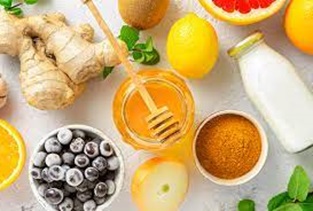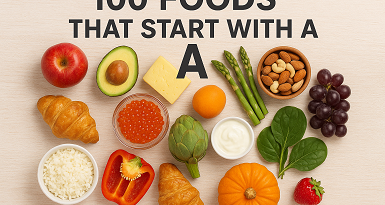10 Natural Foods with Antibiotic Properties in Nigeria
10 Natural Foods with Antibiotic Properties in Nigeria: Certain foods, plant extracts, and essential oils are naturally rich in antibiotic properties, offering a safe and effective way to combat bacteria.
Many of these natural remedies, such as garlic, honey, and specific herbs, have been used for centuries to prevent the growth of bacteria in food and to support health.
Foods with Antibiotic Properties
Interestingly, antibiotics, which are used to kill or inhibit bacterial growth, are not just modern medical discoveries.
Many original antibiotics—and even those used today—are derived from natural sources.
Beyond their role in nutrition, some of these natural ingredients can also support personal hygiene and fight infections.
Foods with Antibiotic Properties
For example, cranberry extract is known for its antibacterial and antioxidant properties, making it a popular home remedy for urinary tract infections (UTIs).
Similarly, many herbs have demonstrated antibiotic effects. A study of 58 Chinese plants found that 23 had antibacterial properties, while 15 exhibited antifungal effects.
Foods with Antibiotic Properties
A 2014 study revealed that certain herbal therapies could be as effective as chemical antibiotics in addressing bacterial overgrowth in the small intestine.
Explore the list below to learn about some of the most popular natural antibiotics you can use at home to boost your health and immunity.
Here’s a curated list of 10 natural foods rich in antibiotic properties that are commonly available in Nigeria, along with their health benefits:

- Garlic
- Properties: Contains allicin, a compound with potent antibacterial and antifungal properties.
- Uses: fights bacterial infections, boosts immunity, and aids in wound healing.
- Honey
- Properties: Contains hydrogen peroxide and methylglyoxal, which exhibit strong antimicrobial effects.
- Uses: Effective for wound healing, soothing sore throats, and combating drug-resistant bacteria.
- Ginger
- Properties: Known for its antibacterial, antioxidant, and anti-inflammatory effects.
- Uses: inhibit harmful bacteria, support digestion, and ease respiratory infections.
- Turmeric
- Properties: Contains curcumin, which has antimicrobial and anti-inflammatory benefits.
- Uses: Helps fight infections, soothes inflammation, and boosts the immune system.
- Clove
- Properties: clove oil is rich in eugenol, offering strong antibacterial and antifungal properties.
- Uses: Effective for oral health, pain relief, and fighting bacterial infections like Staphylococcus aureus.
- Oregano
- Properties: Contains carvacrol, a compound with strong antimicrobial activity.
- Uses: Helps treat respiratory and digestive infections; can be used as an oil or seasoning.
- Thyme
- Properties: Rich in thymol, effective against various bacteria, including E. coli and MRSA.
- Uses: Supports oral hygiene, enhances immunity, and fights bacterial infections.
- Neem Leaves
- Properties: Contain nimbin and azadirachtin, which possess antibacterial and antifungal qualities.
- Uses: Commonly used for treating skin infections and oral hygiene.
- Fenugreek
- Properties: Contains compounds with antibacterial and wound-healing properties.
- Uses: Used as a tea or in paste form for treating infections and inflammation.
- Coconut Oil
- Properties: Rich in lauric acid, which has antimicrobial and antifungal benefits.
- Uses: Supports oral health (via oil pulling) and helps fight minor skin and gut infections.
Key Considerations
- Integration: While these foods provide natural antibiotic effects, they should complement, not replace, medical treatment for serious infections.
- Moderation: Overusing concentrated extracts (e.g., oils) may lead to side effects. Always follow recommended dosages.

The Bottom Line
Including these foods in your diet can help support your overall health and immunity while providing natural protection against certain bacterial infections.
Always consult a healthcare professional when using these remedies for medical conditions.



Pingback: MyBlog